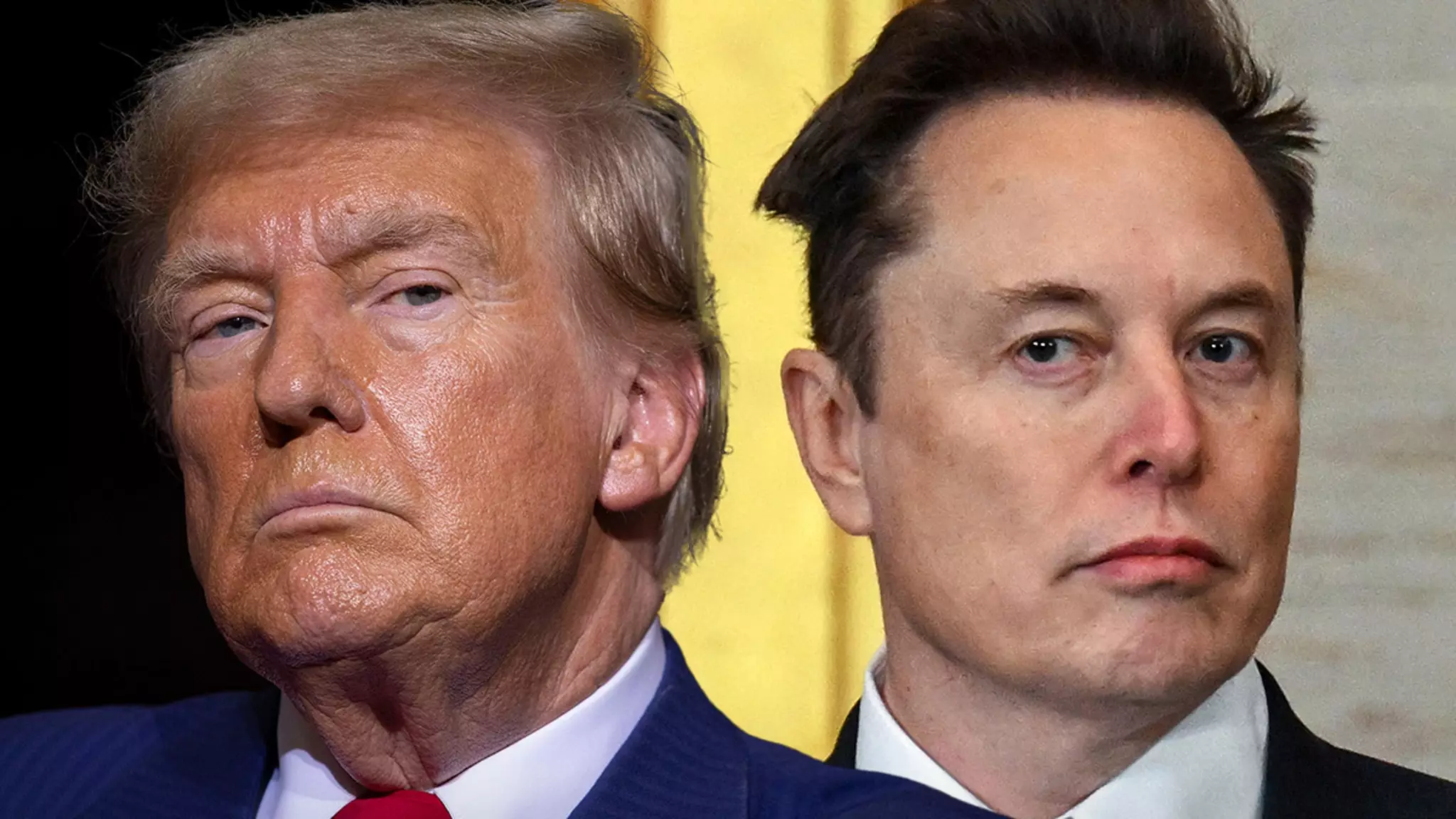In recent weeks, the fierce exchanges between Elon Musk and Donald Trump have transcended social media petty squabbles, evolving into a clash that could significantly influence the political landscape. This ongoing rivalry exemplifies how personal animosities among high-profile figures can impact national conversations, with each using the megaphone of social platforms to sway public opinion and political support. Musk, the innovative entrepreneur known for disruptors like Tesla and SpaceX, has been increasingly vocal in criticizing government policies, particularly those aligned with Trump’s agenda. Conversely, Trump, a master of media attention and political manipulation, is not one to sit idly by when challenged—especially by someone who commands such influence over technology and finance sectors.
This confrontation is not merely superficial; it reflects deeper ideological divides. Musk’s warnings about legislation such as the “Big Beautiful Bill” speak to concerns over economic sustainability, technological innovation, and national sovereignty. Trump’s retort, laden with threats to leverage government agencies or revisit subsidies, reveals a strategic attempt to maintain political and economic dominance. Both characters demonstrate how personal motives intertwine with broader national issues—taxes, subsidies, industry regulation, and even cryptocurrency—creating a complex web that influences policymaking and voter perceptions alike.
Your Perspective on Power Dynamics and Economic Implications
From an analytical standpoint, this feud underscores a critical question: how do personal conflicts among such influential figures shape policy discussion? Musk’s stance against the bill illustrates a belief that government intervention often hampers innovation. His vocal opposition to increased taxation and industry subsidies aligns with a broader free-market philosophy, yet his strategic use of social media amplifies his voice exponentially. Meanwhile, Trump’s reaction—threatening to derail Musk’s ventures and questioning his reliance on subsidies—reflects a game of leverage. Trump’s threats to potentially turn government entities against Musk’s enterprises reveal a desire to assert dominance and influence the narrative.
Beyond mere sparring, these exchanges serve as a microcosm of larger ideological battles. Musk’s warnings about bill-induced economic harm and job destruction highlight concerns of widespread stagnation and decay within vital sectors. On the other hand, Trump’s comments about subsidies and protectionist measures demonstrate a prioritization of national economic strength over individual entrepreneurial success. The inclusion of cryptocurrency references, like DOGE, adds a layer of complexity—Musk’s advocacy for digital assets is not just about finance but also about challenging traditional power structures.
This rivalry’s unseen message is that control over technology, finance, and policy spheres is fiercely contested. Elon Musk’s positioning as a visionary entrepreneur and social media influencer provides him a unique platform to sway public opinion, just as Trump’s political savvy ensures his narrative remains dominant. Their skirmishes reveal how personality-driven politics can directly influence legislative processes, especially in an era where social media is a primary battleground.
Beyond Personalities: The Future of Political Alliances and Public Discourse
The escalating tension between Elon Musk and Donald Trump raises questions about the future of political discourse. Are we witnessing the birth of a new hybrid political arena where entrepreneurs and celebrities hold sway comparable to traditional politicians? The answer appears to be increasingly yes. Musk’s threat to create a new political party signals a desire to challenge the entrenched two-party system by leveraging his popularity among tech-savvy and younger demographics. His willingness to criticize legislation publicly and threaten political realignment demonstrates a shift toward a more fluid, personality-driven political landscape.
Furthermore, the interplay between these powerful figures hints at an emerging narrative: that corporate influence and personal branding are becoming as critical as conventional political machinery. Their public disputes serve to energize specific segments of the electorate, potentially swaying votes and policy debates during crucial election cycles. This transformation could either invigorate democratic debate by introducing diverse voices or deepen polarization, making bipartisan consensus increasingly difficult.
Lastly, it’s worth considering how this feud might influence regulatory policies and industry subsidies moving forward. Musk’s warnings about excessive government help and Trump’s threats to reallocate resources suggest that economic policy is now deeply intertwined with personal rivalries. As these two continue their verbal warfare, their actions will likely shape the regulatory environment and public expectations of corporate-government relationships for years to come.
While the clash between Elon Musk and Donald Trump may seem like high-profile entertainment, it actually signifies a profound shift in how power, influence, and politics are wielded in the modern era. The stakes go beyond social media insults; they are about who holds the keys to America’s future economic and technological trajectory. Understanding this dynamic is vital for anyone interested in the next chapter of American power struggles — one where personalities are as influential as policies.

